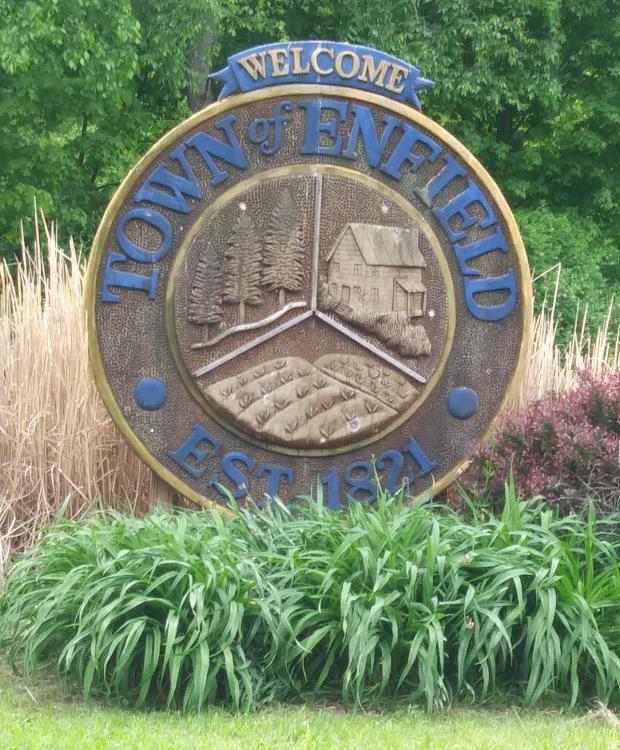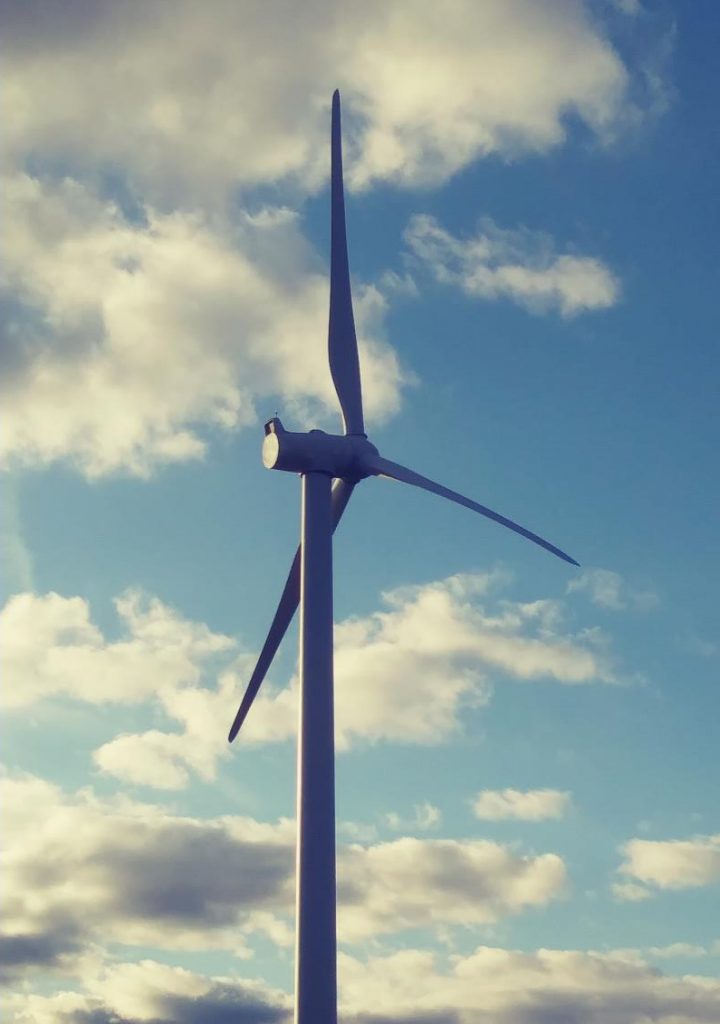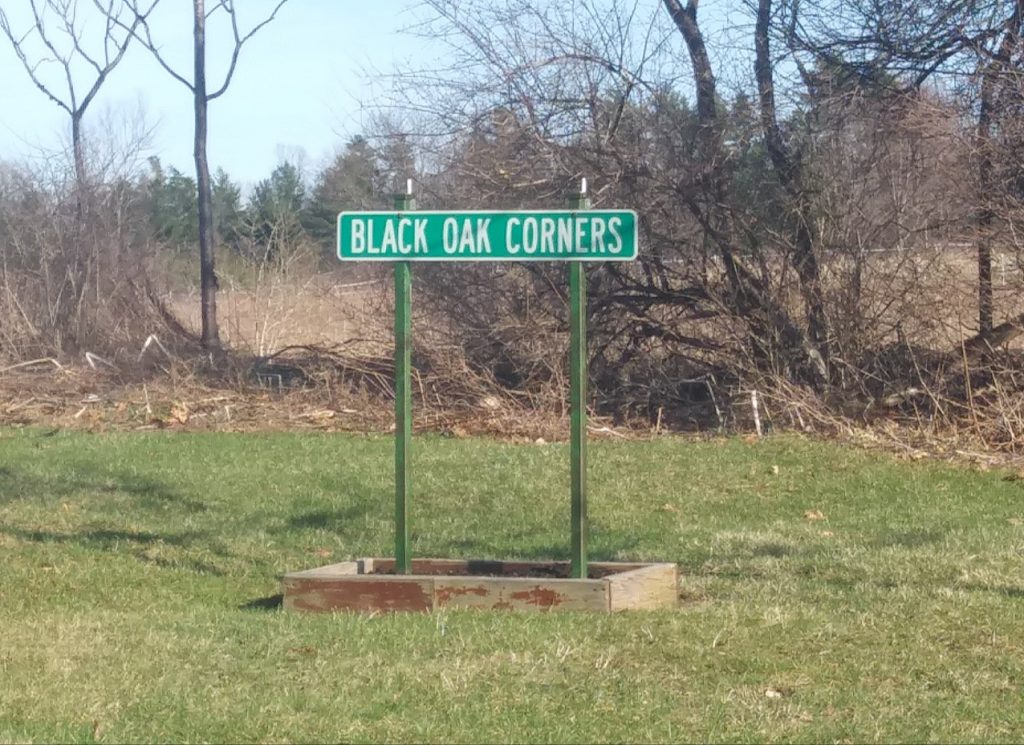Posted on this Website’s Home Page, October 18, 2019
On Wednesday, October 16, 2019, the Enfield Town Board held a Public Hearing on its proposed Wind Energy Facilities Local Law. Our Town’s Renewable Energy Advisory Committee spent more than two years, during Enfield’s 29-month Wind Moratorium, to research and draft the proposed Wind Law. The Town Board then invested as many as six special meetings this spring, summer and fall to review, revise, and edit the Committee’s submission. I expect the Town Board will approve this law, probably largely unchanged, later this year.
The following Public Hearing comments were presented by me as a Town resident, not necessarily as a political candidate. In an effort to de-politicize my submission, I presented the Town Board my opinions in writing. I post my submission here for you to read and consider:
October 16, 2019,
Good Evening. My name is Robert Lynch. I reside at 175 Gray Road, Town of Enfield.

Some of my words tonight may surprise you. No, I will not support adoption of this Local Law. I believe its proposed regulations are far too restrictive. As Town Councilperson Becky Sims opined following an earlier Public Hearing August 14th, “When I read the Wind Law, it reads like a ban.” And nothing short of an outright ban, she added, may satisfy many in this Town.
I often disagree with Councilperson Sims, yet I respect her perception and her judgment. Yes, Becky, you’re right. This 60-page labyrinth of regulation (plus 22 pages of attached Appendices) is, indeed, a ban—effecting a permanent prohibition of commercial wind generation in the Town of Enfield. It imposes death by a thousand regulatory cuts; 23,000 words of You Must Do This. It is a ban.
I’ll quote Councilperson Sims further from that night—after 11 of my town’s neighbors spoke in favor of yet further extending our already-overstretched Wind Moratorium, and I, alone, spoke out against it. Sims said:
“If people want a ban, perhaps that should be on the table. And our current [Wind] Law doesn’t do that. But I’m not sure this is the right tool, and we probably have more than three months of work to do.”
When the time came to cast her vote on extending the Wind Moratorium those extra three months, through this November, Councilperson Sims hesitated, drew a long breath, and then mumbled her abstention. Her mental anguish was palpable.
Are we who sit in this room tonight deceiving ourselves? Are we winking and nodding to each other about this law’s supposed legitimacy and true purpose? Are we regulating, or are we banning? Are we not culminating 28 months of micro-targeted statutory drafting by producing a document that quite audibly mutters between its lines: “Windmills, go away!” Are we attempting with these many words, these many regulations to skirt by legal artifice a lawsuit we might otherwise lose? And most importantly, are we tacitly, yet purposely, assuring ourselves that the likes of the Black Oak Wind Farm will never again darken our door? Let’s be honest with ourselves, Enfield Town Board. Yes, we are.
Perhaps, we’d be wiser to adopt Councilperson Sims’ admonition. Do what the activist neighbors—though not necessarily the whole Town—prefers. Impose a ban; then take our legal lumps. Brave; risky; but honest.
That’s my overall assessment of the draft Wind Energy Facilities law. But now, the surprise:
Though I oppose regulation so intrusive as to preclude commercial wind power in Enfield entirely and forever, I am not among the limited few who would advocate a laissez faire absence of Town oversight. If some choose to analogize the words of Alaska’s petroleum-friendly former governor, Sarah Palin, and chant, “Spin Baby, Spin!” I will not join their chorus.
On a dreary Sunday afternoon during my campaign of last spring, I visited a prospective constituent. She spoke up, “You know, Bob, I used to support wind power, too. But then I found out that wind turbines make me sick. When I pass by them in other places, the sub-sonic noise makes my whole body rebel against itself.” On yet a second occasion, another woman complained that spinning turbines trigger her migraines.
Both women spoke with sincerity and passion. They left me with the impression of each being intelligent, perceptive and well-read. Yet I must ask: Are their sensations real or only imagined? I do not know. I trust science. I’d need solid evidence before drawing conclusions. How close is too close? And if their complaints hold weight, their perceived ailments become a deal-breaker for me.
Here’s my bottom line. It should be that of this Town Board as well: Nobody should be compelled to sell her home and leave Enfield because of another’s negligent behavior. Human health is not just one issue among many that you must scrutinize in evaluating commercial wind energy; it is the most important issue; perhaps the only issue that really matters.

In my opinion, our Town’s Renewable Energy Advisory Committee, which took more than two years to lay the regulatory predicate for this Wind Law; and then our Town Board, which consumed as many as six special meetings this summer to review the Committee’s draft, truly took its eyes off the ball. I attended every Town Board meeting this summer. My notes reveal this Board’s members seldom talked about human health.
Instead, money and contracts took center stage. The Board agonized over escrow accounts, decommissioning obligations, and road maintenance agreements. On that latter point, with smiles all around, Board members inserted provisions to assure that should a wind turbine during its transport damage a Town road even minimally, the Town would mandate the owner repair the road to perfect shape, not just to the condition in which he’d found it. “Go to Pennsylvania. See how great the roads are after the fracking rigs arrived,” one prominent member quipped. Municipal rent-seeking defined.
As its most significant change made during its at-times perfunctory summer-long review, this Town Board (wisely) relaxed the Advisory Committee’s exceedingly-restrictive property line setback requirement, cutting it from one mile to approximately half that distance. But when it did, this Board talked little about human health. Rather, discussion turned to visual annoyance and potential debris litter. Over and over, this Board’s concern became transactional. Your members talked of money and things a lot; people not so much.
Too often, this Enfield Town Board abdicated its leadership role. Members allowed the Renewable Energy Advisory Committee, a group populated by well-intentioned, albeit opinionated, volunteers, to dictate the script. The Board then seldom deviated from that script.
Given the time you’ve taken and the importance you’ve assigned to getting this Local Law just perfect, perhaps you should have assigned the work to professionals.
As I’ve responded this week to a candidate questionnaire by ENSAW (Enfield Neighbors for Safe Air and Water), I suggest the Board should have hired a paid consultant, someone with professional expertise, rather than relied upon an activist committee. And as I said, “Why didn’t [this Board] focus upon the one most important issue that, I think, matters, namely human health, not on bats, road maintenance agreements, and improbable doomsday scenarios envisioning blazing propellers spraying debris upon the landscape?” My opinion.
Moreover, this proposed Wind Law impacts the little guy; the homeowner, the individual who just wants to cut his electric bill, help save the environment, and maybe put a little juice back into the grid. ARTICLE VIII of this proposed law, breezed past quickly by the Board in July, burdens him as well.
- ARTICLE VIII, §2-D would limit so-called Small Wind Turbine Generators [Small WTG’s] to a height of no more than 120 feet. Meddlesome Section 2-F [similarly §3-C] would insist that Small WTG’s be used “primarily to reduce consumption of electricity at that location.” (What about grid-feeding? Is that prohibited?) Other sections would prescribe twice-the-height setback requirements [§4-A]; color restrictions [§3-D] and minimum lot sizes [§3-A].
- Costly ARTICLE VIII, §2-H would require each Small WTG applicant to submit a “visual analysis:” which “may include a computerized photographic simulation, demonstrating the visual impacts from nearby strategic vantage points.” The requirement invites subjective determinations. And it could stop an application dead in its tracks based on the objection of one angry neighbor.
- But the problems don’t end there. ARTICLE VIII, §4-B would subject the Small WTG operator to the same property line noise limitations—different day and night—as would be imposed upon commercial operators. Should someone complain to the Enforcement Officer, the Town could compel the Small WTG owner to pay for any consultant the officer might retain [§6-C-1]. And Section 6-C-2 would fine the little guy for violations on the same scale as his commercial counterpart. Third repeated violations could carry misdemeanor penalties of $1,000 per day. No talk of jail—yet.
ARTCLE VIII’s opening paragraph states that the Article’s intent, in part, is “to encourage the development of small wind energy systems….” But to me, the text of ARTICLE VIII tells a different story. Like so much else in this proposed Wind Law, the heavy hand of wind-hostile regulation lies at its heart; rules attractive to the NIMBY, perhaps, but not conducive to weaning Enfield (and America) off fossil fuels.
The Town of Enfield can take the lead in becoming an environmental partner in advancing the New Green Economy. Or it can stand as its obstacle and its adversary. You, the Enfield Town Board, will decide which path this community chooses to take.

No, as I’ve made clear, commercial wind generation cannot proceed without regulatory oversight, public safety guardrails. Progress should never come at the expense of human health. Do wind turbines make certain people sick? Maybe. And if so, how much separation is necessary and sufficient between man and machine? We must find out. Best we do it professionally, and not just by volunteers surfing the Internet.
But once the health questions are resolved—and for us, I fear they have not been—this Board must make a tough choice; one it has chosen to evade, despite all this time and all those meetings. This Board must openly, bluntly and courageously weigh the potential benefits of commercial (and homeowner) wind power against any reasonable risks. This Wind Energy Facilities Law, my Town Board, does not speak to reason. Some might treat it as NIMBY-ism on steroids. I’ll just see it as Councilperson Sims sees it; as a ban on commercial wind power, when read carefully and thoughtfully.
I believe the Enfield Wind Energy Facilities Local Law before us tonight strikes the wrong balance between progress and protection. As I’ve told ENSAW, I believe the draft Wind Law before us is not best for Enfield. Please reject this proposed law. Please try again.
Respectfully submitted,
Robert A. Lynch

